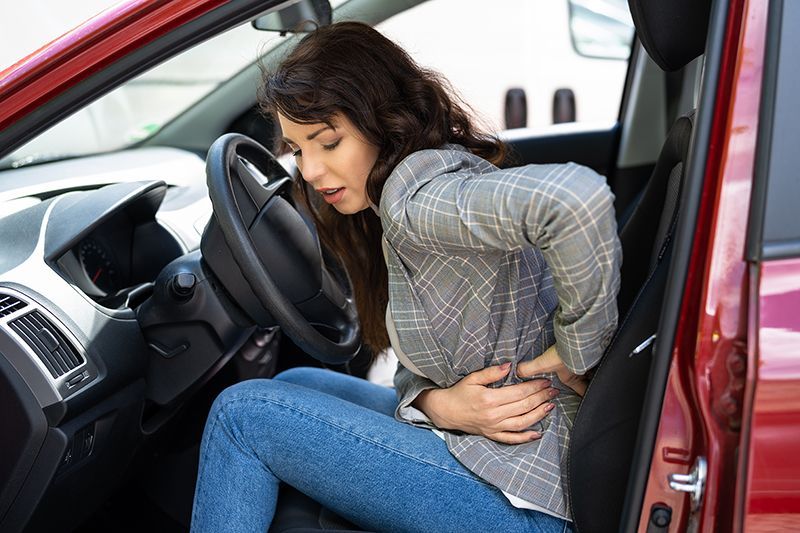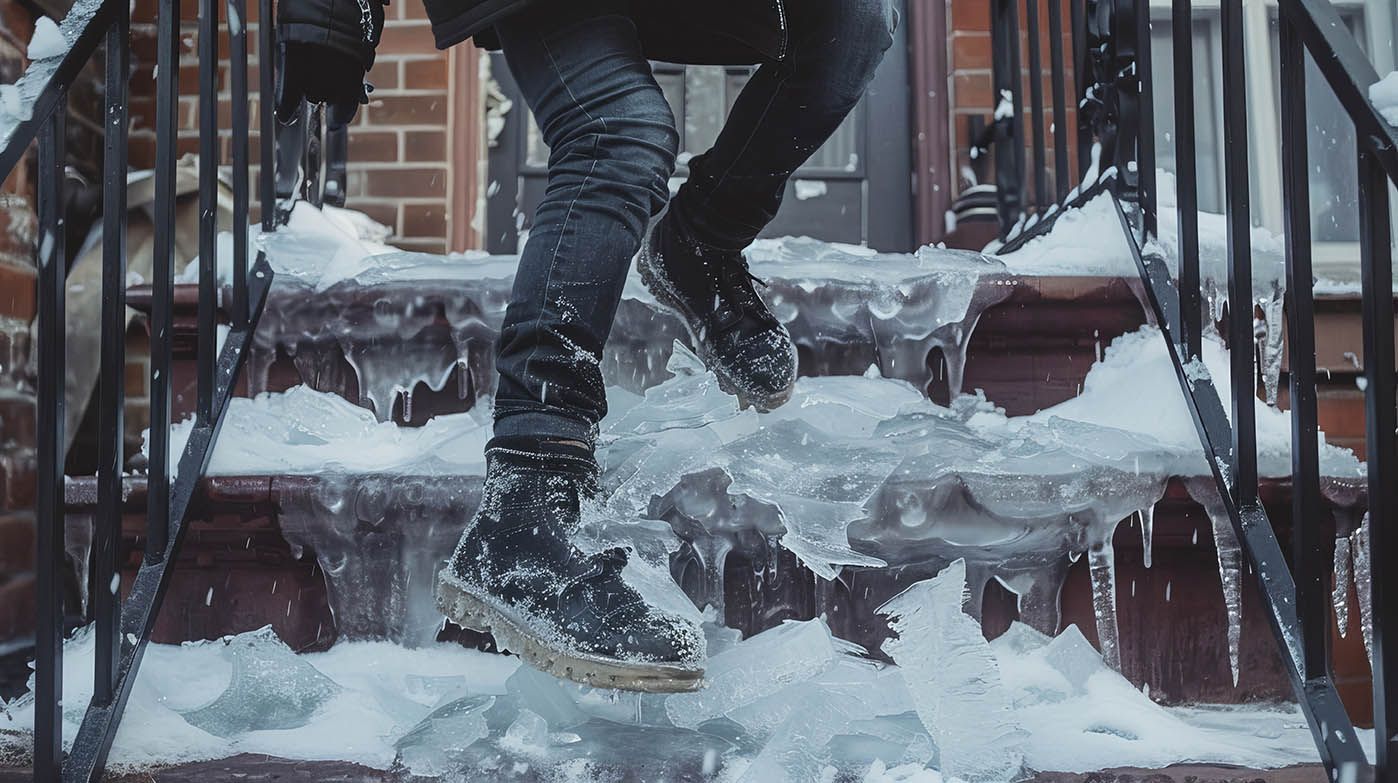BLOG
Passenger Injuries: What Are Your Legal Rights After a Car Accident in Iowa or Nebraska?

When most people think about car accident claims, they picture one driver suing another. But what happens when you’re the passenger? Whether you were riding with a friend, using a rideshare app, or simply carpooling to work, passengers have the same right to compensation as drivers—sometimes more.
At Fitch & Stahle Law Firm, we regularly help injured passengers across Iowa and Nebraska secure the compensation they deserve. In this blog, we’ll explain how liability works for passenger injuries, what your options are, and how to protect your rights after a crash.
1. Passengers Are Almost Never at Fault
The most important thing to know is this: as a passenger, you are rarely found at fault for a car accident. This puts you in a strong position when it comes to filing an injury claim. Whether the driver of your vehicle caused the accident or another vehicle was involved, you may be able to recover damages from one or both parties’ insurance providers.
This means you can typically file a claim with:
- The driver of the vehicle you were in
- The driver of the other vehicle (if they were at fault)
- Both insurance policies, if fault is shared
In states like Iowa and Nebraska, where comparative fault laws apply, passengers are almost always entitled to compensation unless they did something to contribute to the crash (e.g., physically interfering with the driver).
2. Who Pays for Your Injuries? Understanding Liability
Liability depends on who caused the crash and what kind of insurance coverage is available. Here are the most common scenarios:
• If the driver of your vehicle was at fault:
You can file a third-party claim against their auto insurance policy. Even if they’re a friend or relative, you have a legal right to compensation for your medical expenses, lost wages, and pain and suffering.
• If another driver was at fault:
You can file a claim against the at-fault driver’s liability coverage. This is common in multi-vehicle accidents, where the other driver rear-ended or struck your vehicle due to negligence.
• If both drivers share fault:
You may be able to file claims against both drivers’ insurance policies and recover partial compensation from each, depending on the percentage of fault assigned to each driver.
3. What If You Were Riding in a Rideshare (Uber or Lyft)?
If you were a passenger in an Uber or Lyft when the crash occurred, your claim may be covered by the rideshare company’s insurance, depending on when and how the accident happened.
- If the driver was transporting a passenger (you), rideshare companies typically carry $1 million in liability coverage.
- If the driver was waiting for a ride request or in transit without a passenger, a lower coverage limit applies.
You can also potentially file a claim with the driver’s personal insurance policy. These cases can be complex, so having an experienced attorney is crucial for navigating rideshare claims.
4. What Damages Can You Recover as an Injured Passenger?
As an injured passenger, you are entitled to the same types of damages as any other injured party. Depending on the severity of your injuries, you may be eligible to recover compensation for:
- Medical bills (ER visits, surgery, rehab, prescriptions)
- Lost wages (if you miss work during recovery)
- Loss of future earning capacity (if you can’t return to work)
- Pain and suffering
- Emotional distress
- Permanent disability or disfigurement
The value of your claim will depend on the evidence of your injuries, how the crash occurred, and how it has affected your daily life.
5. What If You’re Related to the Driver?
In some cases, your ability to file a claim may be limited if you are related to the at-fault driver and live in the same household. This is due to what's known as a "household exclusion" clause in many insurance policies.
However, exceptions apply—particularly if:
- The policy does not include this clause
- You’re not a resident of the same household
- Additional liability coverage is available
It’s essential to have an attorney review the insurance policies involved to understand your options.
6. What About Insurance Limits in Iowa and Nebraska?
Both states require drivers to carry liability insurance:
- Iowa minimum coverage:
- $20,000 for injury or death of one person
- $40,000 for injury or death of two or more people
- $15,000 for property damage
- Nebraska minimum coverage:
- $25,000 for injury or death of one person
- $50,000 for injury or death of two or more people
- $25,000 for property damage
These minimums can be exhausted quickly in a serious crash. If the liable driver’s insurance is insufficient, you may be able to pursue compensation through underinsured motorist coverage (UIM)—either through your own policy or one that covers the vehicle you were riding in.
7. Why You Shouldn’t Wait to File a Claim
Each state has a statute of limitations for personal injury claims:
- Iowa: 2 years from the date of the accident
- Nebraska: 4 years from the date of the accident
However, waiting too long can hurt your case. Evidence can disappear, witness memories fade, and insurance negotiations become harder. It’s in your best interest to speak with an attorney as soon as possible to start building your case.
8. How Fitch & Stahle Law Firm Can Help Injured Passengers
At Fitch & Stahle, we’ve helped hundreds of clients across Iowa and Nebraska get the compensation they deserve—many of whom were passengers caught in crashes through no fault of their own.
Our team will:
- Investigate the cause of the crash
- Determine all available insurance policies
- Communicate with insurers so you don’t have to
- Build a strong case backed by evidence
- Negotiate for a fair settlement—or take your case to court if needed
We work on a contingency fee basis, so you pay nothing unless we win.
Final Thoughts: Protect Your Rights as a Passenger
Being in the wrong place at the wrong time shouldn’t cost you your health, your job, or your financial future. If you’ve been injured as a passenger in a car accident—whether in Iowa, Nebraska, or anywhere in the Siouxland area—you have legal rights and options for recovery.
Don’t wait. Let the experienced legal team at Fitch & Stahle Law Firm help you understand your rights and pursue full compensation for your injuries.


